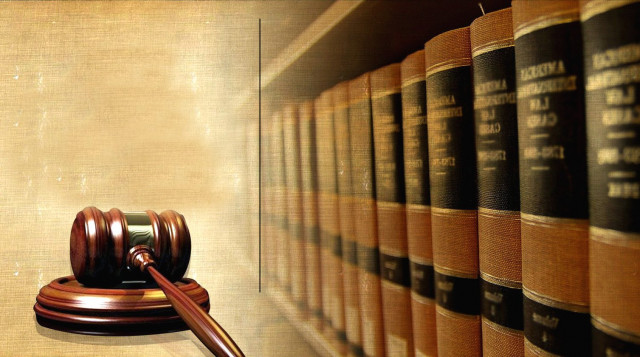Diplomatic immunity: Privileges Act challenge disposed of as withdrawn
Since Davis has left Pakistan, petitioner may file a separate case, says court.

The Lahore High Court (LHC) on Tuesday disposed of the petition challenging the Diplomatic and Consular Privileges Act, 1972, that gives immunity to diplomats, after the petitioner withdrew it.
During the proceedings, Justice Chaudhry Iftikhar Hussain, observed that since Raymond Davis, who had brought immunity laws in the limelight, was no more in
Pakistan, there was not much point to pursuing the case.
The judge, however, remarked that he petitioner may file a separate petition against the Act. The petitioner then requested the court to dispose of the petition as he wanted to withdraw it. The court accepting the request disposed of the case as being withdrawn.
The petition was filed by Advocate Muhammad Azhar Siddique who challenged the legal status given to diplomats by the Federal Government of Pakistan through the Act under the Vienna Convention on Diplomatic Relations, 1961, and Vienna Convention on Consular Relations, 1963.
Deputy Attorney General Naseem Kashmiri, on behalf of the federal government, said that the petition was linked to Davis. He said the petition had no legal merit after the accused had been acquitted by the court on payment of diyat to the families of deceased and left the country.
Earlier, the petitioner had opposed the request saying that the plea was not only related to Davis’s diplomatic immunity, but also challenged the Privileges Act 1972.
The petitioner had named the federal and the Punjab governments, former foreign minister Shah Mehmood Qureshi, former PPP information secretary Fauzia Wahab and Davis as the respondents in the case.
He had said that the Diplomatic and Consular Privileges Act, 1972, violated the fundamental rights mentioned in the Constitution of Pakistan, 1973. He said it was an infringement on Article 8 of the Constitution, which stated that the life and liberty of the citizens were protected.
The petitioner argued that the American ambassador had publicly declared that a person apprehended by the Punjab Police was mistaken as Davis while he was actually not Davis, but someone else. He said under such circumstances, the man who was arrested and mistaken as Davis could not be released for claiming diplomatic immunity.
He said that the investigation agency had recovered instruments from the accused that had been used for spying.
The petitioner had asked the court to summon the respondents for their statements regarding diplomatic immunity. He had also requested the court to declare the Diplomatic and Counsellor Privileges Act, 1972 illegal and set it aside.
Published in The Express Tribune, April 27th, 2011.



















COMMENTS
Comments are moderated and generally will be posted if they are on-topic and not abusive.
For more information, please see our Comments FAQ